When initially taking on the role of Director of Equity and Inclusion, Mr. Mario Garza was not fully sure of everything his job entailed. Now, one and a half years into the position, Mr. Garza has gained more insight and set new goals to ensure La Salle is a diverse community.
For Mr. Garza, a diverse school is one filled with many students from different backgrounds — spanning from visible differences such as race, ethnicity, and sex, to the unseen aspects that make up a person like socioeconomic status and education — and a place where each is acknowledged and represented. It is important to him that not just the physical differences are highlighted, but also those that are not often visible.
“Those kinds of things are important to me as well because that’s not necessarily something that you see,” he said. “It’s about learning about students.”
He said that supporting students has always been his number one goal, something that started even before he came to La Salle.
Before joining as a counselor two years ago, Mr. Garza worked for 15 years at Woodburn High School in Woodburn, Oregon, a predominantly Hispanic community with many students who were first or second generation immigrants.
“I really loved working with that population, in a large part, because that’s kind of the population that I came from,” he said. “I came from a very working-class background, my parents were migrant farm workers at one point in their lives, so trying to support a community like that was important to me.”
He was also involved during college at the University of Oregon, doing work revolving around affinity groups and cross-cultural planning within aspects of the school community. Being involved in these activities was important for him because he understands that often the experience people of color have is different than that of others.
“I think there needs to be different types of supports for different types of students to make sure they have the same access to success,” Mr. Garza said.
That’s a large part of what drew him to La Salle: the drive to support students with backgrounds similar to his, or that are part of a minority in the school community. When he first came to La Salle he was a counselor, primarily working with those in the San Miguel Scholars Program, but later he was asked if he was interested in taking on the role of Director of Equity and Inclusion.
At first, he was hesitant — as he didn’t fully know what that job here involved — but he said, “look, if I am able to support students, I am really interested.”
Since stepping into this role, La Salle’s affinity groups stood out as a crucial way for students to share their voices and build a more inclusive community. He believes that this is one of the many ways that La Salle continues to stay inclusive and diverse, as any student trying to start something, from a potluck to a Flex Time meeting, is going to be met with support and help.
“I think the fact that we allow space and support for our community to continue to value the aspects of their culture that are important to them openly on this campus is really important,” Mr. Garza said. “It is something that I value as well.”
He has seen these affinity groups become even stronger this past year. He said that groups such as Asian American Pacific Islander club (AAPI), UNIDOS, Black Student Union (BSU), and Pride Alliance have become more active, and he hopes that these groups can become increasingly involved in the future through frequent events and collaborations between affinity groups.
“I think those things end up building a stronger community and a stronger sense of ‘we’re not just these islands that operate amongst ourselves,’” Mr. Garza said.
He wants students to see different cultures and identities, not just through the affinity groups, but reflected throughout the school environment. One of the ways he plans to accomplish this is through school events and assemblies.
For the past two years, La Salle has put on the Roots Festival as a way to bring different cultures together with activities such as potlucks and entertainment, and Mr. Garza hopes to continue the community’s involvement in that.
He is currently looking into facilitating lunchtime conversations that will allow students to discuss topics important to them and allow for student voices to be heard.
Mr. Garza is also looking for different opportunities for students to continue developing themselves outside the walls of La Salle. This could be going to events such as the Asian American Youth Leadership Conference or the BSU conference to give them opportunities to understand themselves better.
“I love kids being able to do a lot of learning outside of the classroom, whether that’s through their affinity group, whether that’s through you know… maybe cultural events or conferences,” he said. “Those are the things that really kind of excite me because I know those things were important to me growing up.”
He hopes that not just students are educated on different cultures, communities, and backgrounds, but also teachers. Mr. Garza has been aiming to hold more professional development on campus highlighting issues of inclusivity, equity, and diversity.
Currently, he is working with a couple of different teachers to plan a professional development meeting for staff members to allow them to reflect on their own identities, the way that they present themselves in front of other people, and challenge some of the assumptions that they might make about their students. Through this, he hopes that staff members can learn more about how to make the classroom an inclusive space for everyone.
One of Mr. Garza’s goals is not just to think about inclusivity and diversity in terms of just staff members and students but the broader La Salle family as well.
Mr. Garza realized after reflecting on events such as Steak and Seafood or Believe that sometimes the diversity of the student body is not always showcased in parent or family attendees.
Last year he started a Hispanic parent group, and he hopes to start another parent group for those from Asian backgrounds so that “someday, when we come to Steak and Seafood or Believe or what have you, the people in the tents there, it’s like ‘oh, this actually looks like our school,’” Mr. Garza said.
He explained that he is working to find more ways to figure out how to get the parents “involved in the community the same way their kids are,” so that all aspects of the Lasallian community are highlighted.
Beyond looking at ways he can personally further inclusivity, Mr. Garza also seeks to address the ways in which La Salle can grow as a whole, while recognizing that the community is already continuing “to strive” for improvement.
He acknowledged that within the school, things such as racism and homophobia can occur and make some students feel like they are not welcome, but he wants to ensure those things stop happening.
One way he is trying to combat these incidents is through educating students so that they can learn from their mistakes.
“A lot of it is education, trying to make sure students understand why what they did isn’t a great practice, or why what they did could make other students feel like they’re not welcomed here,” he said.
He is also trying to implement this kind of education into orientations and different formation activities so students are able to understand “who we are as a Lasallian school,” Mr. Garza said. “The banners have to be more than just these things hanging on the wall.” He believes that if people understand the core principles, then things take care of themselves.
He wants students to feel like “they belong here, like La Salle is their place” and that “if we admit you, we’re going to take care of you,” he said.
Another way that he sees La Salle improving in terms of ensuring diversity and inclusion is by not being afraid to speak up if students hear or see something wrong.
In La Salle and the broader society, he has seen a culture around not wanting to be “a snitch,” but he wants there to be a community of people supporting and speaking up for each other. This will allow staff members to know what is happening within the community, and ensure that harmful language and acts are never going unnoticed.
Though he knows how hard it is to do, he also knows that “sometimes silence is basically kind of like an unintended thumbs up,” Mr. Garza said.
“It’s great to not be the kind of person that says and does ugly things, but it’s greater to be somebody that will hold other people accountable for their actions or words or whatever that harm others in the community,” he said.
For anyone who wants to be more active in making the school an inclusive place, he encourages them to be intentional about what they are doing. From participating in events such as the Black History Month assembly, to other affinity group meetings, he wants people to be open to learning new experiences and try to listen to what they are saying.
Mr. Garza believes that one of the first steps to creating an inclusive place for everyone is to look beyond ourselves. “If we just focus on ourselves then I don’t think we are ever going to get to where we want to,” he said.
He hopes the community as a whole continues to “educate students, looking at different ways when students come to La Salle, as part of orientation and different formation activities, to really have an understanding of who we are as a Lasallian high school and certainly why we value diverse communities on this campus,” he said.



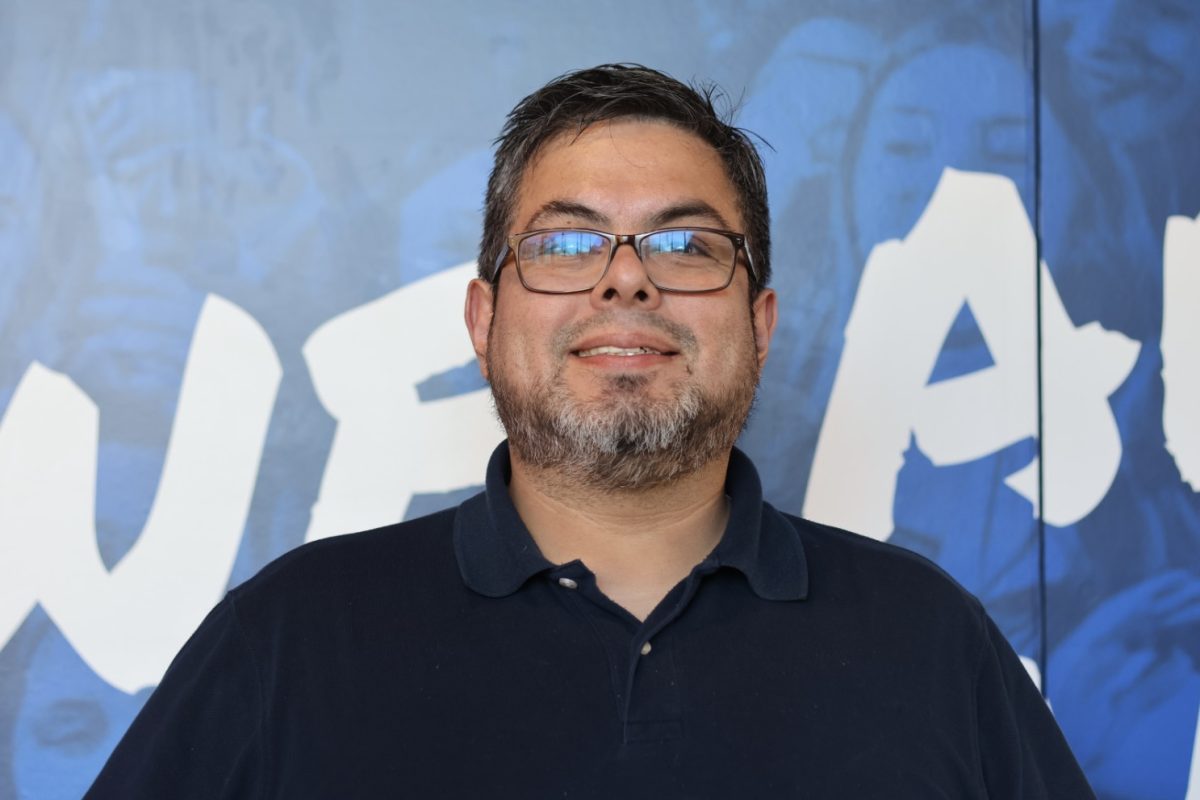

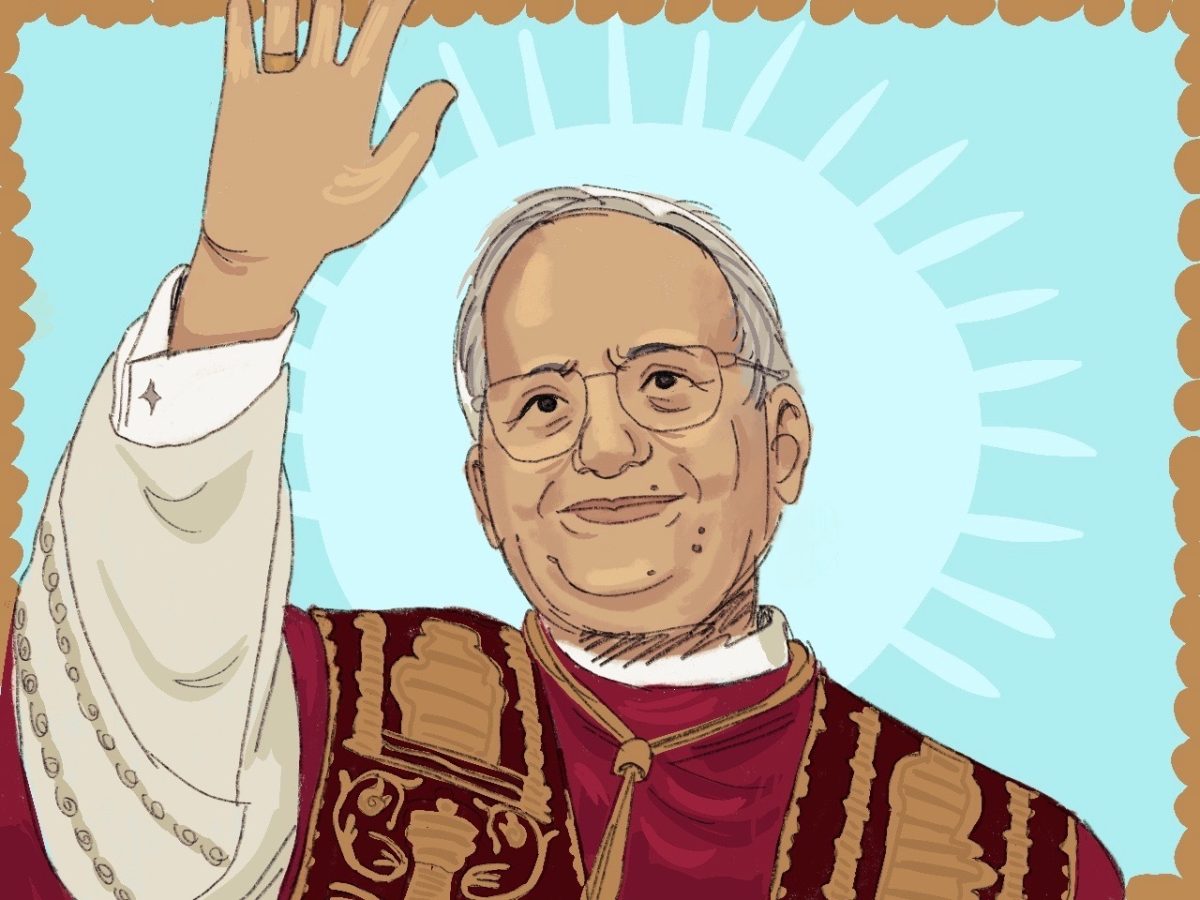

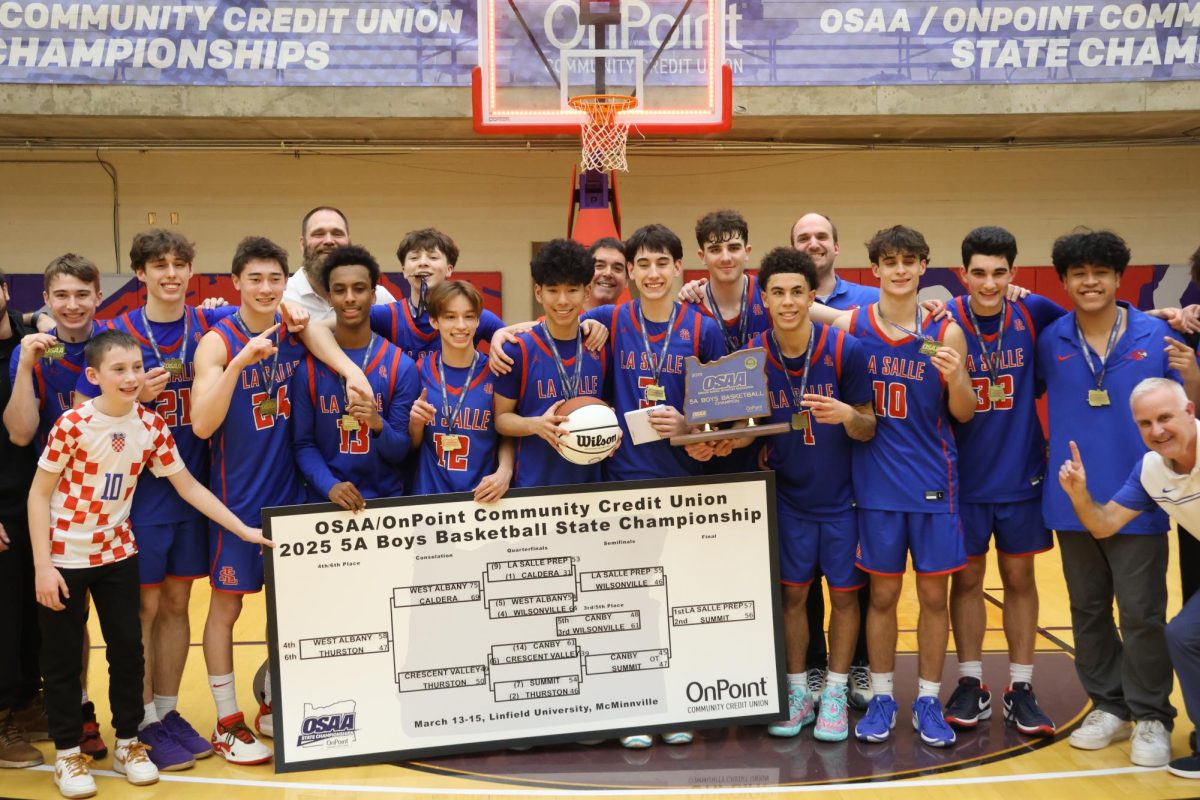
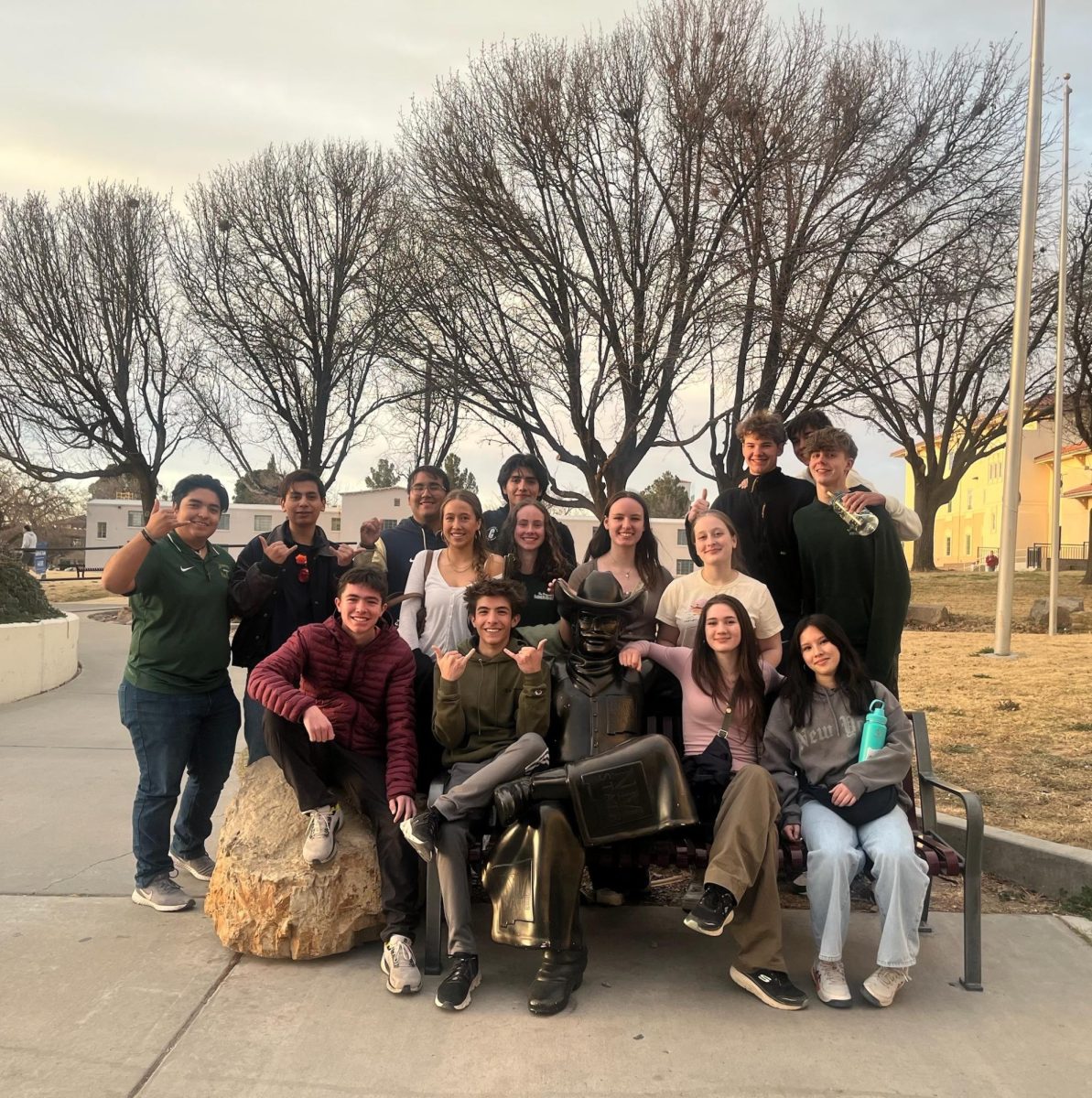
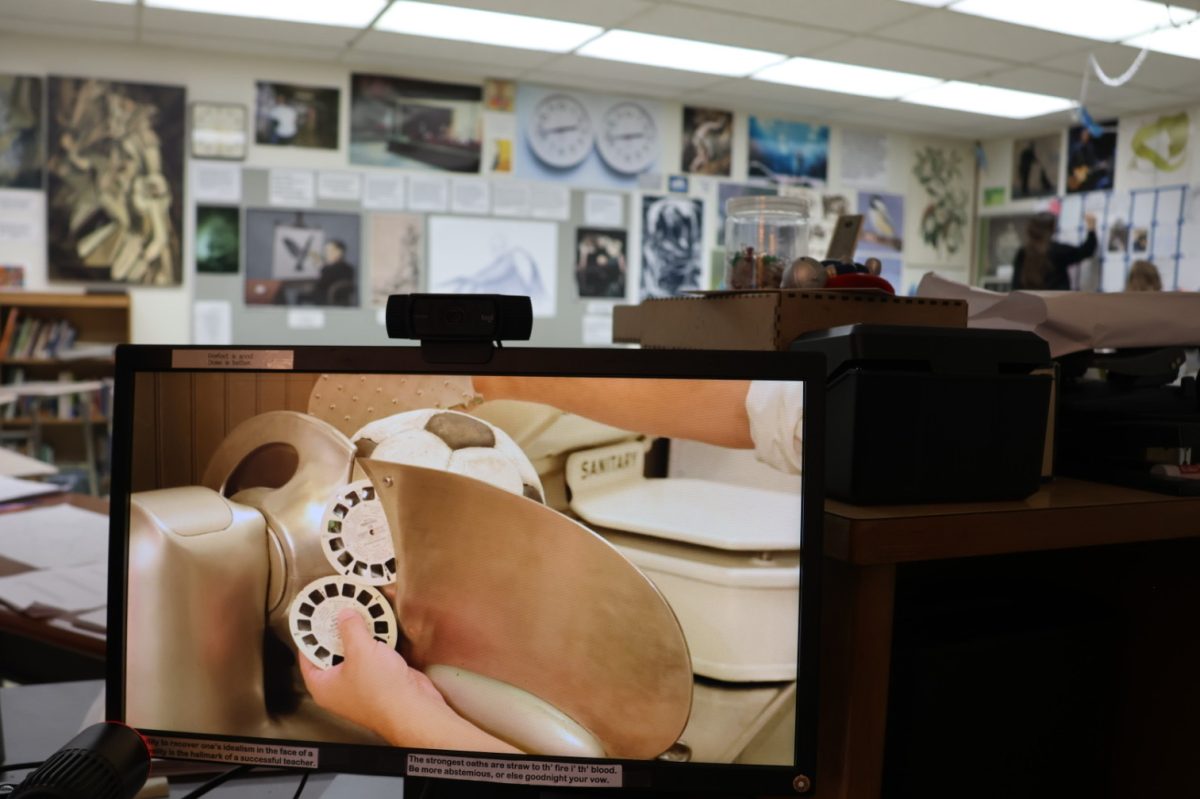

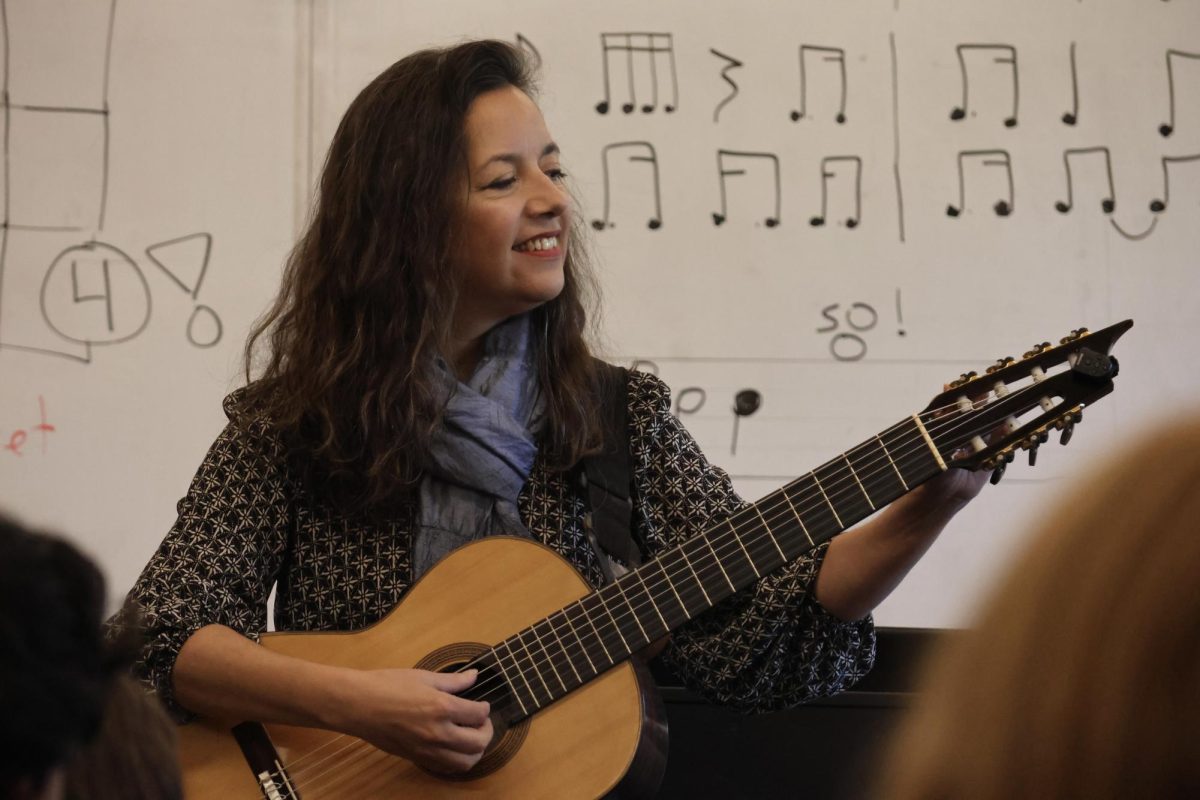
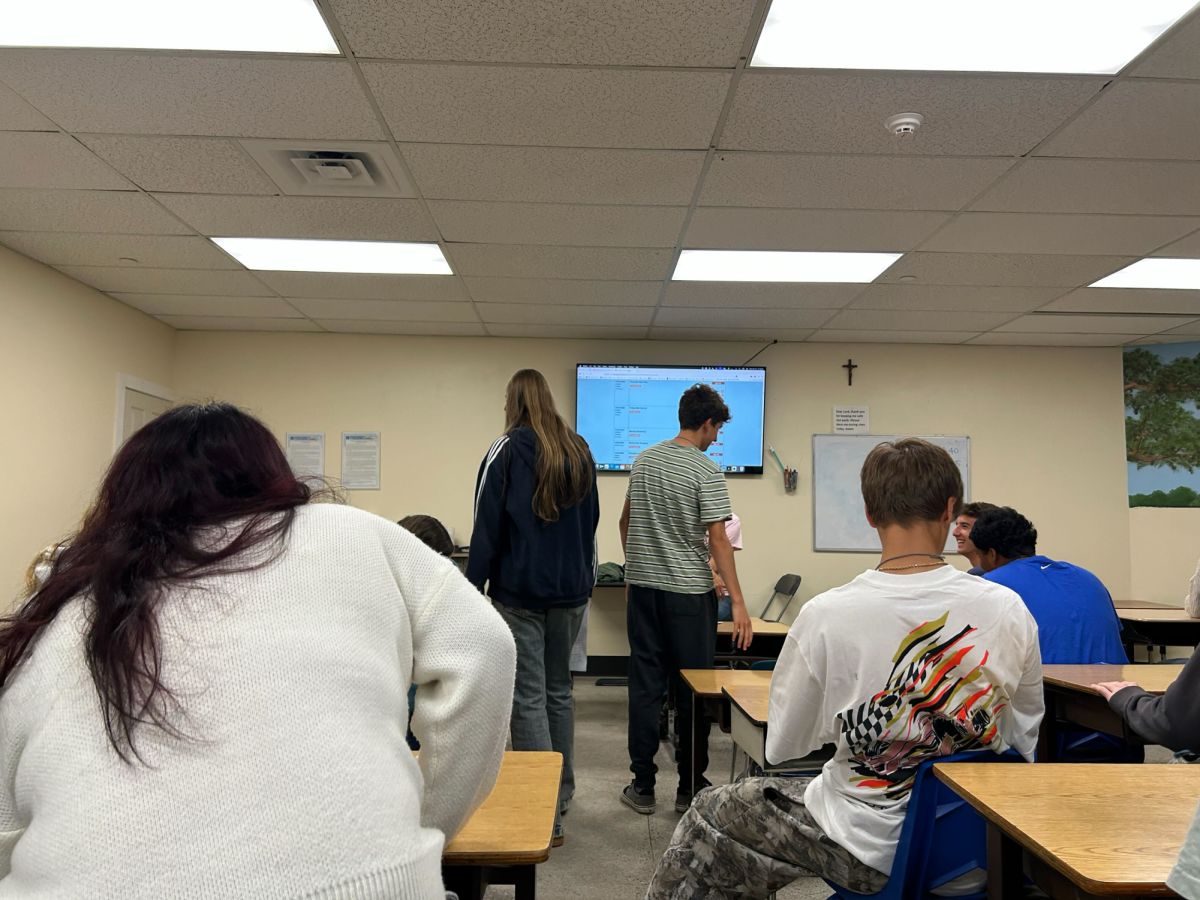
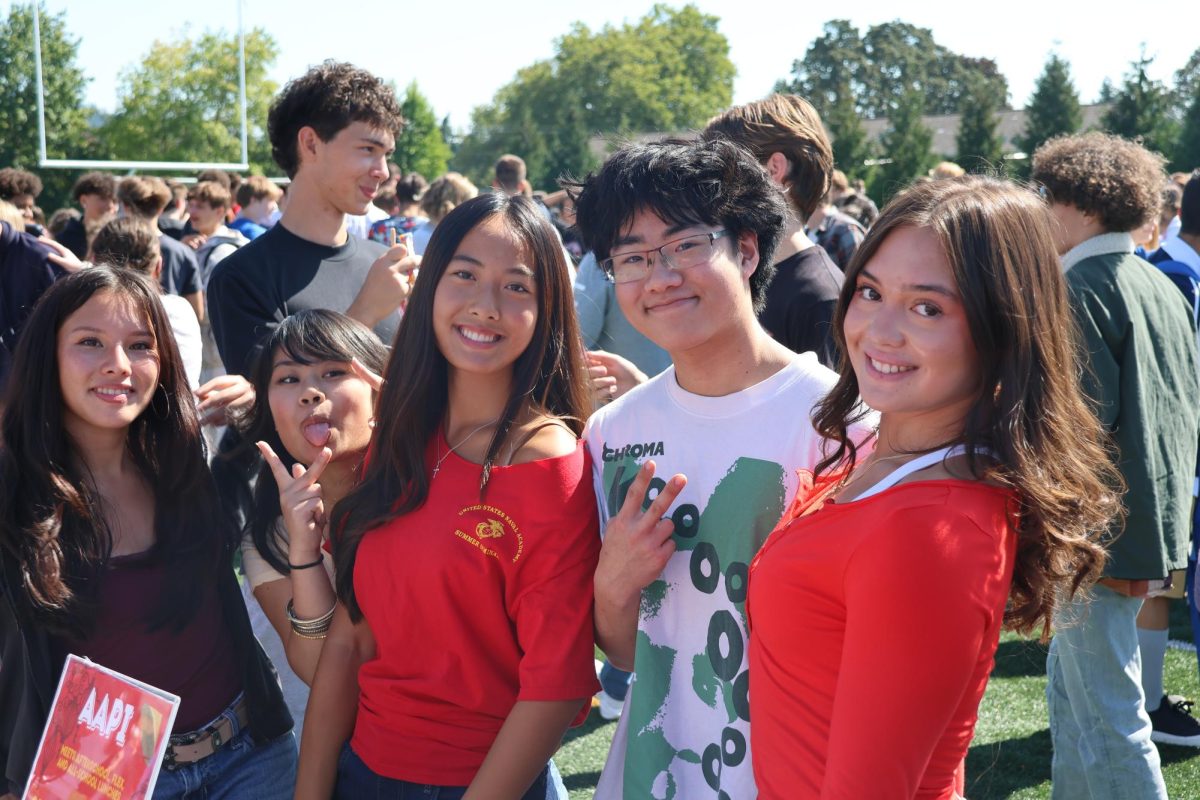
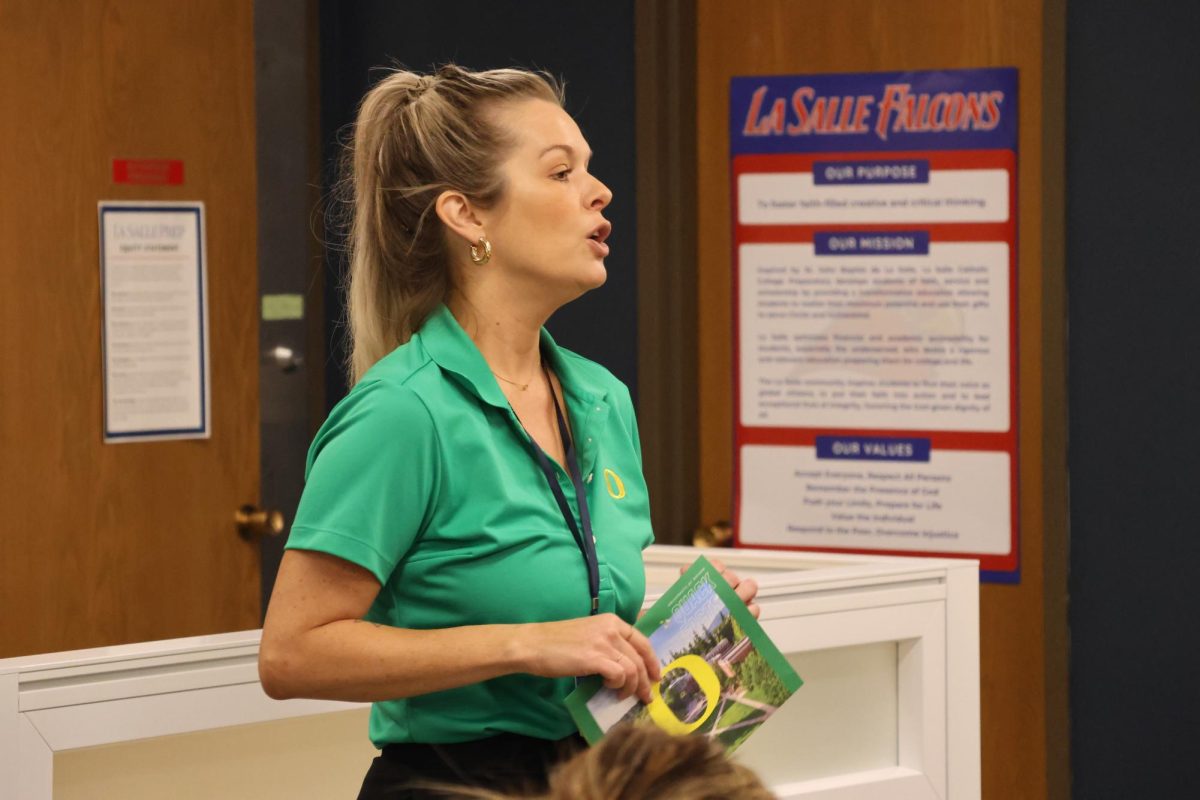
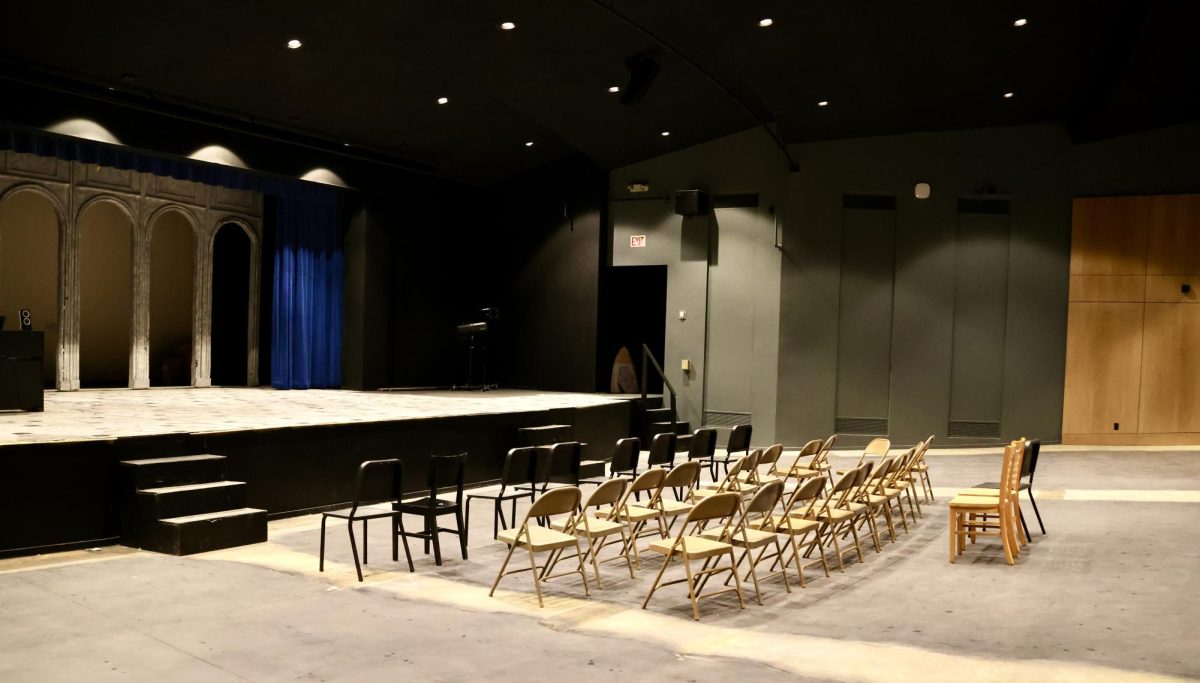
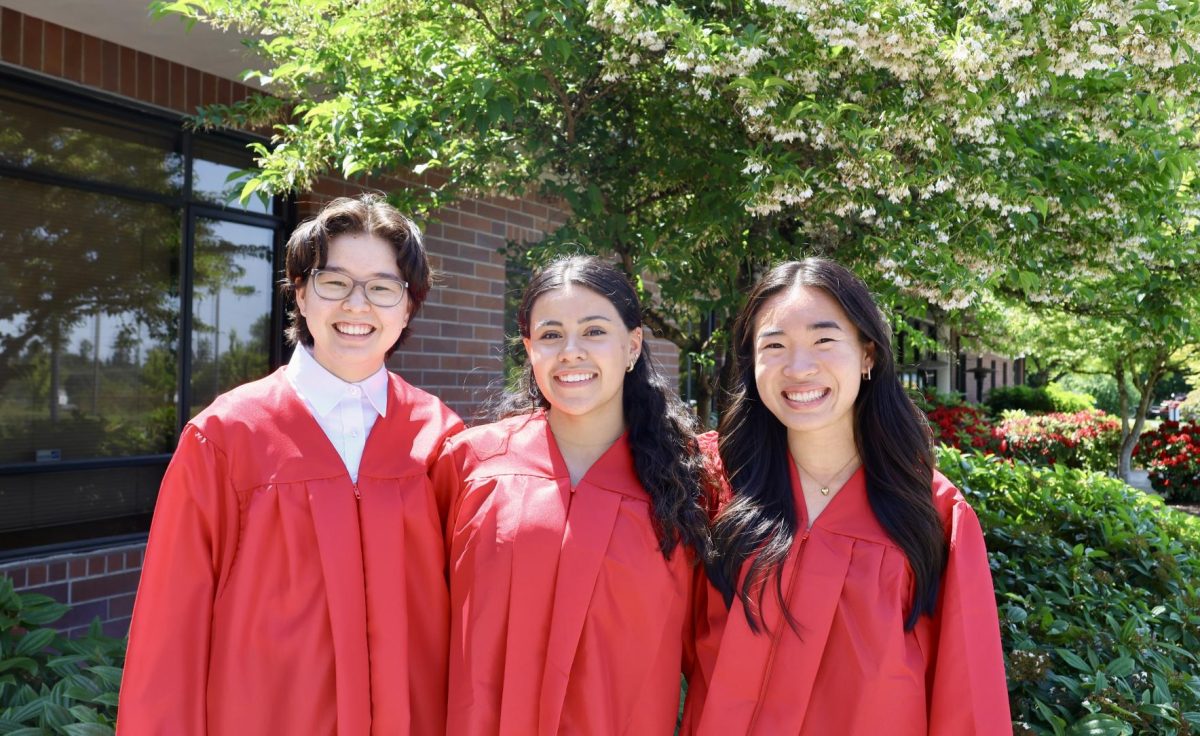
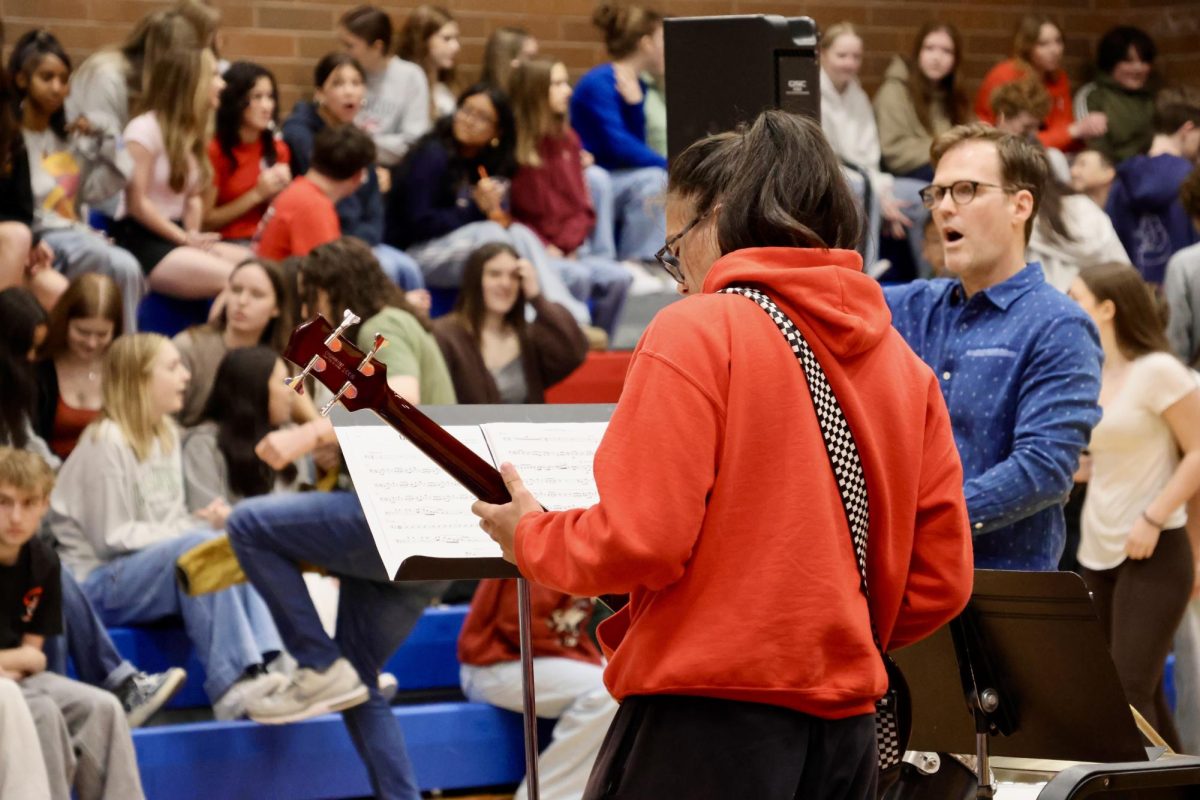


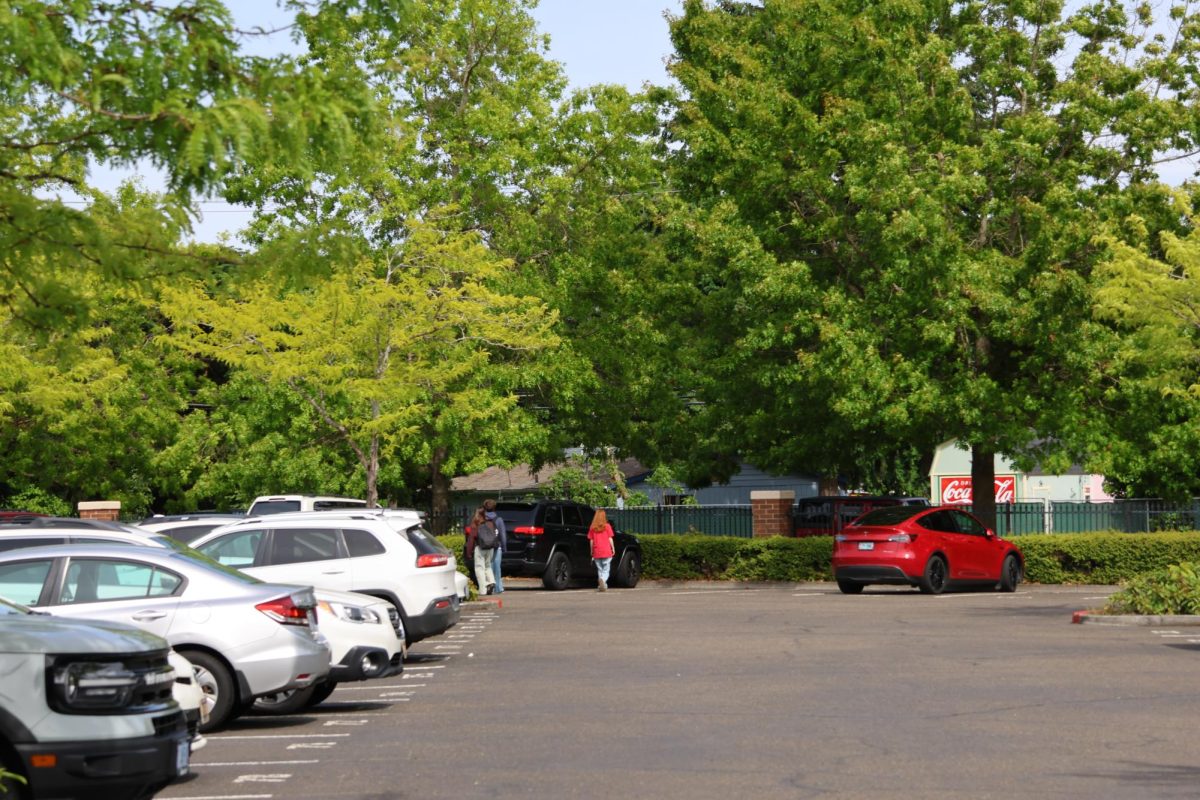
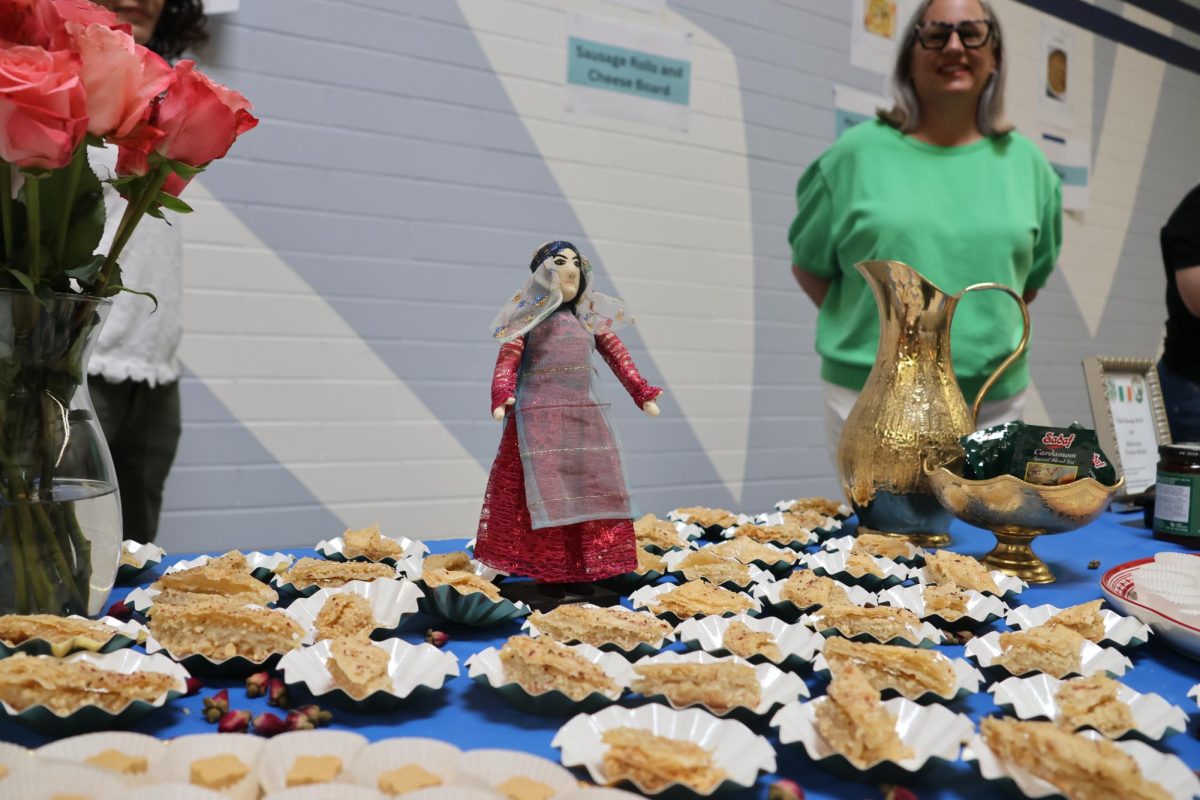
Chris Babinec • Feb 6, 2025 at 8:18 am
Mr. Garza’s words and leadership are so important at la Salle. This is the most potent and important part of the story for me:
“It’s great to not be the kind of person that says and does ugly things, but it’s greater to be somebody that will hold other people accountable for their actions or words or whatever that harm others in the community,” he said.
I hope the students and larger community internalize the values from the banners and lead with love and empathy.